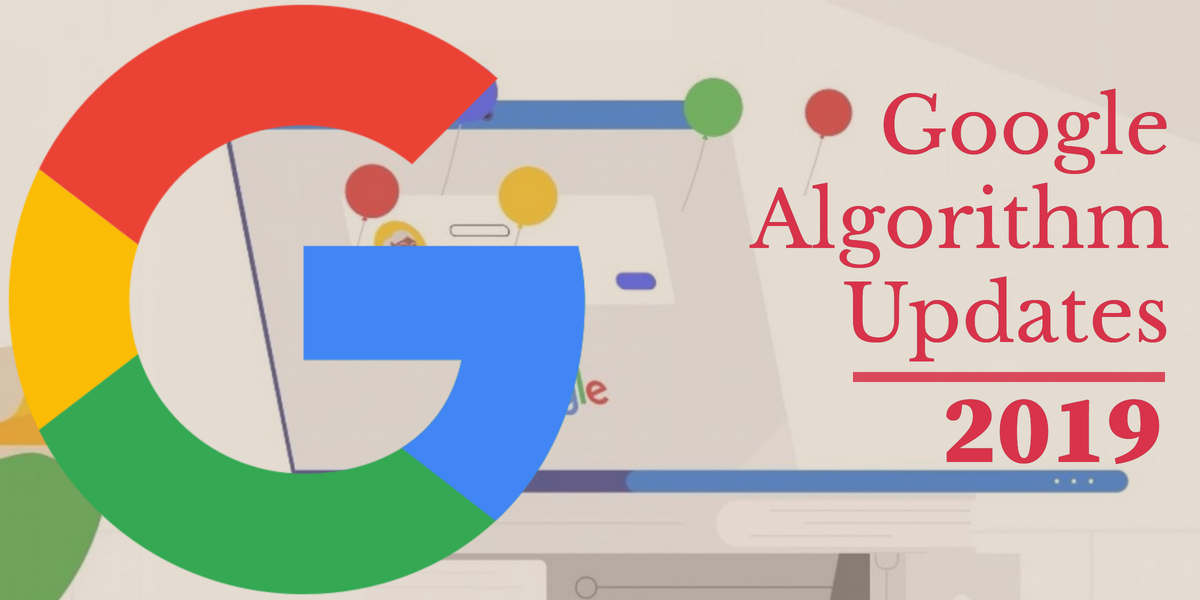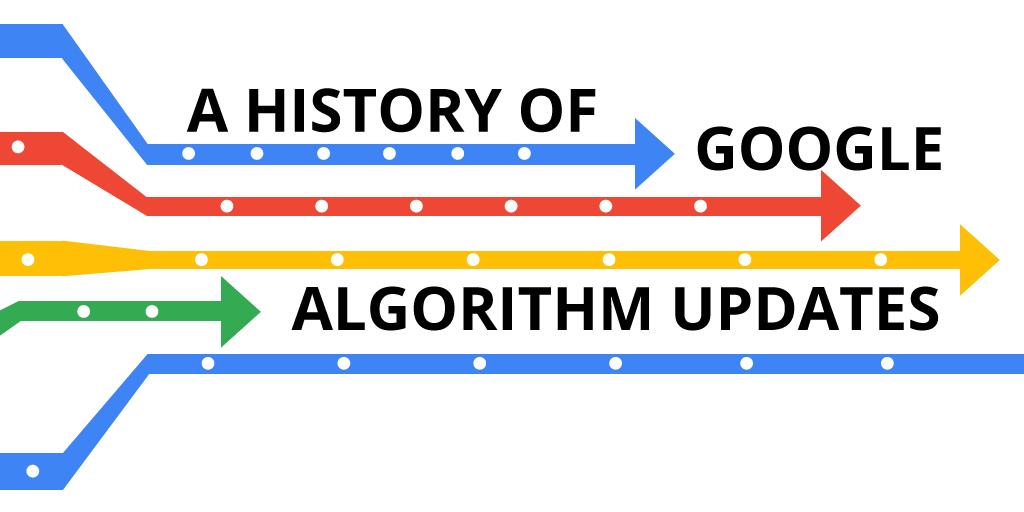Amidst a global pandemic, Google released its latest core algorithm update. For SEO masters, content writers, business owners, and anyone who relies on search, Google core updates are kind of a big deal.
- Improve Your Rankings With Google's Local Algorithm Updates
- Improve Your Rankings With Google's Local Algorithm Updated
Since mixed tools are used to improve the ranking of your website, therefore this core algorithm update is also covering the miscellaneous issues. This Google update is quite broad and involves all the main algorithms that can affect your site’s ranking. Let’s have a look over the major key points of these latest updates. Google announced in May that they would revamp their search engine algorithms with so-called core Web Vitals updates. It makes perfectly good sense because the updates are intended to improve Google’s judgment upon which websites are the most worthy of the positions on the first page of Google Algorithm Update. To improve your business’s local ranking, use Google My Business to claim and update your business information. Update your business info for better visibility You may find that your business.
Whether your site stands to win or lose after any given update depends on several factors, including the quality of your content, your site’s performance, and authoritative backlinks.
What is the History of Google Core Algorithm Updates?
Past Google updates, including Panda, the first core algorithm update in 2011, have influenced the way sites are designed and how writers create content. Since the Panda update, Google has rewarded sites that produce high-quality, in-depth content and offer a positive user experience.
The Penguin update in 2012 influenced the emergence of high-quality backlinks, penalizing sites that tried to buy or trade links. Google introduced it as an update to the core algorithm in 2016.
Other updates changed elements of search engine optimization such as:
- Using semantically related keywords and natural language
- Local search
- Website security
- Mobile optimization
- Page-load speed
- User intent
- Expertise-Authority-Trust
E-A-T Update Corrects for Passed E-A-T Algorithm Changes
The latest update is primarily an Expertise-Authority-Trust update, focusing on:
- Writer expertise
- Website and brand authority
- Trustworthiness of content
What do Google E-A-T updates mean? Google rewards websites featuring:
- Content by writers who are experts on their topic, whether that means people like actual doctors, lawyers, or finance experts, or writers who specialize in these fields
- Brand authority – that is, they are a well-known name and have high-quality backlinks
- Content readers can trust because it is well-sourced and in-depth
Websites that publish content written by experts in the field, use statistics and quote peer-reviewed studies, and include links to other high authority websites typically do well when Google’s algorithm focuses heavily on E-A-T.
But this latest update seeks to give smaller websites, who may not have established as much brand authority merely because of their size, a chance at achieving page one rankings.
During a pandemic and nationwide quarantine that brought many small businesses to their collective knees, the Google May 2020 Core update may have given those same businesses a helping hand with online visibility.
The May 2020 Core update seems to have re-evaluated its definition of “authority,” by giving smaller sites with less well-known names a higher ranking for publishing high-quality, informative content.
How Much Did the Google May 2020 Core Update Affect Websites?
Some Google core updates can shake up entire industries. Panda turned content writing upside down, by forcing companies to embrace high-quality reported content. Later updates penalized sites that weren’t mobile-friendly.
The May 2020 core update wasn’t as earth-shattering as these, but it did significantly shake up page rankings.
SEO platform RankRanger analyzed the volatility of websites across four different industries as a result of the update:
- Travel
- Retail
- Finance
- Health
The top three positions in each of these categories got shaken up considerably, with double-digit changes for all but the travel niche.
There was even more volatility in the top 10 results, with a shake-up of:
- 91% for travel sites
- 88% for retail sites
- 97% for finance sites
- 94% for health sites

With an E-A-T algorithm change, it’s not surprising to see finance and health sites affected heavily. After all, E-A-T was introduced to ensure people are getting relevant, factual, accurate information on topics regarding health and finance. Google calls these sites “Your Money, Your Life” (YMYL) niches.

It was, however, surprising to see travel and retail sites affected nearly as heavily by an E-A-T update. Another analysis found the most highly affected categories to be a bit different, with travel leading the pack.
An SEMRush analysis showed the “most influenced categories” to be:
- Travel
- Real Estate
- Health
- Pets & Animals
- People & Society
Of those, only “Health,” and some real estate sites, fall into a YMYL classification.
However, changes in travel sites could also be due to a drop in traffic during quarantine. Once people canceled their trips in early April, fewer people may have been visiting travel sites to make plans.
The 2020 May Core update shows Google’s desire to share real news and reduce the spread of misinformation – a trend we’ve been seeing across social media platforms, too. Even before the pandemic, Facebook was attempting to reduce the spread of misinformation, and the pandemic has accelerated those efforts.
Improve Your Rankings With Google's Local Algorithm Updates
With the May 2020 core update, people can now search the web with greater confidence that the content they click is authoritative, factual, and reliable. In fact, the News niche featured more sites who benefited from the Core update than any other niche, followed by Business & Industrial.
Smaller Sites Win Out
One thing unusual about the May 2020 Core update is that it seemed to favor smaller websites. At a time when small businesses struggled to pay rent and many relied on online sales to keep going, an algorithm update that hurt their SEO efforts could have been devastating.
Instead, half of the significant rank changes affected sites with traffic of 1 million monthly visitors or more.
Since past E-A-T updates favored sites with big names, the latest core update could have been a course correction to uncover valuable content on sites with less authority.
Since Google doesn’t reveal the specifics of its algorithms, it’s hard to guess what changes affected smaller sites in a positive way. But it could have to do with overall traffic, domain age, and quality linkbacks being less of a factor in rankings.
Relevancy Counts with New May 2020 Core Update
The May 2020 Core update also refined the search algorithm to deliver more relevant results to users. That means content writers should place greater emphasis on semantically related keywords and, again, useful content.
Questions You Should Ask About Your Website After the New Google Core Update
Experts say that it can take months for search results to stabilize after a core update. So it’s important not to panic if your site has seen a drop in traffic or search engine rankings recently.
However, it’s a good time to perform an SEO analysis to see where your website stands, how it compares to competitors, and what you can do to improve your rankings in light of the update.
Certain factors, like domain age, you can’t control. But you can control the quality of your content, as well as the technical aspects that help your website run smoothly.
After running a competitive analysis, ask yourself these questions about your website:
- Is my site mobile-friendly?
- Does my site load quickly?
- Is it secure?
- Do high-quality websites link to my content?
- Do I publish my posts on social media to gain high-quality backlinks and more readers?
- Is my content informative?
- Do I link to studies and statistics?
- Does my content answer the questions readers want to know?
- Are my writers experts in their field?
- Do I publish quotes from experts?
- Do I use semantically related keywords?
- Do I take advantage of on-page SEO tactics, like H2 and H3 headers
- Do I optimize photos?
Improve Your Rankings With Google's Local Algorithm Updated
While long articles weighed heavily in search results based on past updates, the latest update focuses more on the quality of the content. Does your page answer the questions readers want to know? Does it achieve its purpose and intent?
Good Content Still Wins Out
SEO experts continue to weigh the effects of the new May 2020 Core update. But there’s one thing they agree upon: Don’t panic.
If your site took a hit after the latest update, give the SERPs time to sort themselves out. Unlike mobile optimization or page-load speed updates, you probably can’t take definitive action to “fix” the results of this latest update.
That’s good news because it means you probably aren’t doing anything wrong. High-quality content based on facts and delivered with authority can help your page climb the SERPs, in spite of any setbacks the May 2020 Core update may have caused.
You may also want to review 11 Reasons Why Your Content Isn’t Ranking to pinpoint problems areas you can fix. It may help to bring in a professional SEO firm and professional content writers who can create content that will help your page rank on Google – no matter how many times the algorithm changes.
Google My Business (GMB) gives you a chance to show up in the Google Local 3-Pack on a Google search result page, allows you to showcase your law firm, and gives you the opportunity to interact with your potential clients.
Having a great Google My Business (GMB) profile allows you to improve your Google local ranking and show up in the 3-Pack when potential clients search for legal services on the main Google search. Your GMB profile is the first impression that prospective clients will have of your law firm, so it is essential that you create an outstanding profile with professional descriptions and up to date information.
How GMB Influences Local Search Results
GMB is the most important listing that you should have for your law firm because it drives local search results. Google has clearly stated that “you can improve your business’ local ranking by using Google My Business.” They mention that if your law firm does not show up for relevant searches in your location, you should work on improving your GMB listing. Some of their recommendations to enhance your presence in Maps are:
GMB Algorithm and Google Local Ranking
Relevance
Distance
Prominence

Organic SEO
6 Key Elements in GMB Optimization
Conclusion
